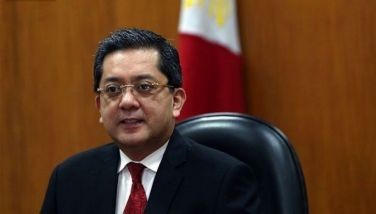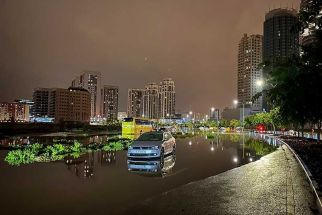Comelec to monitor bloggers, influencers

MANILA, Philippines — The Commission on Elections (Comelec) is now on the lookout for bloggers or social media influencers who have become campaign “outlets” of candidates in the May 13 midterm elections.
Comelec spokesman James Jimenez said yesterday he is heading a 10-member team that will closely monitor blogs or social media posts that are serving as campaign propaganda tools for candidates.
He, however, clarified that the Comelec’s intention is to determine if these sites are declared in the Statement of Contributions and Expenditures of the candidates if it turns out that they are being paid.
“So far, we don’t have regulations against people who are not official outlets of the campaigners. But there are provisions that give the Comelec the freedom to determine for itself if a particular site is acting as campaign outlet,” he said.
Jimenez conceded that the poll body does not regulate contents of campaign advertisement, but candidates and political parties must observe the campaign spending limit. The Comelec, according to him, will be using some forms of measurements in monitoring the activities of social media influencers.
“Number one, we have to look at the overall pattern of activity. It’s not that when you posted something, we will go after you already. We are going to check over time what you have been doing,” he told the Kapihan sa Manila Bay media forum.
For election lawyer George Garcia, however, the move of the Comelec to regulate social media may be contested before the Supreme Court.
Garcia said there is no law that gives the Comelec such power over the internet.
“The law provides that the Comelec can regulate television, radio and newspapers and other means. There is no specific law for social media. Maybe it (falls under) other means but there is still no specific provision,” he said.
‘Be on guard vs disinformation’
Jimenez and Garcia also asked the public to be on guard against “disinformation” circulating ahead of the elections.
Jimenez said they have monitored various disinformation articles that appeared to be intended to hinder voters from casting their votes and to create doubt on the elections.
He said one of the wrong information being spread is that the Comelec will be requiring voters to show their voter’s ID or voter certification before they can vote on election day.
“It is not true. We don’t require any identification documents. If the identity of a voter is being challenged, they can present any valid government ID,” he said.
Jimenez also alerted the public about the disinformation that some individuals have the capability to know which candidate is voted for by a particular voter.
“There is no means for anyone, not even the Comelec, to determine who were voted by individual voters,” he noted.
Meanwhile, Garcia said he received information regarding some candidates being approached by unscrupulous individuals who claim that they can make them win in exchange for a certain amount.
“They are asking candidates for P50-P60 million in exchange for sure win. They claim that they are from the Comelec-IT department,” he said. “This is impossible as nobody can manipulate the result of the automated elections.”
No cause for worry
In a related development, the Philippine National Police (PNP) said the public should not worry on the identification of 701 towns and cities as hotspots in the upcoming midterm elections.
PNP spokesman Senior Supt. Bernard Banac said the classification of the areas in the election watchlist is just a guide for them on what areas need more deployment of police officers and personnel.
“This should not be a cause for worry. This is just a guide for our security forces on what to focus on in monitoring,” Banac said in Filipino over radio dzMM.
He said the figure could change as the PNP conducts an assessment of the situation on the ground every week.
“The figures on the list may fluctuate next month,” Banac said.
Of the 701 election hotspots, the PNP said 94 are considered “areas of grave concern” or under the red category, citing intense political rivalries, presence of armed groups and history of election-related violent incidents.
A total of 223 cities and municipalities are included in the areas of immediate concern while 382 are considered as areas of concern.
Two areas – Cotabato City and Daraga, Albay – have been placed under the control of the Comelec. – With Emmanuel Tupas
- Latest
- Trending



























